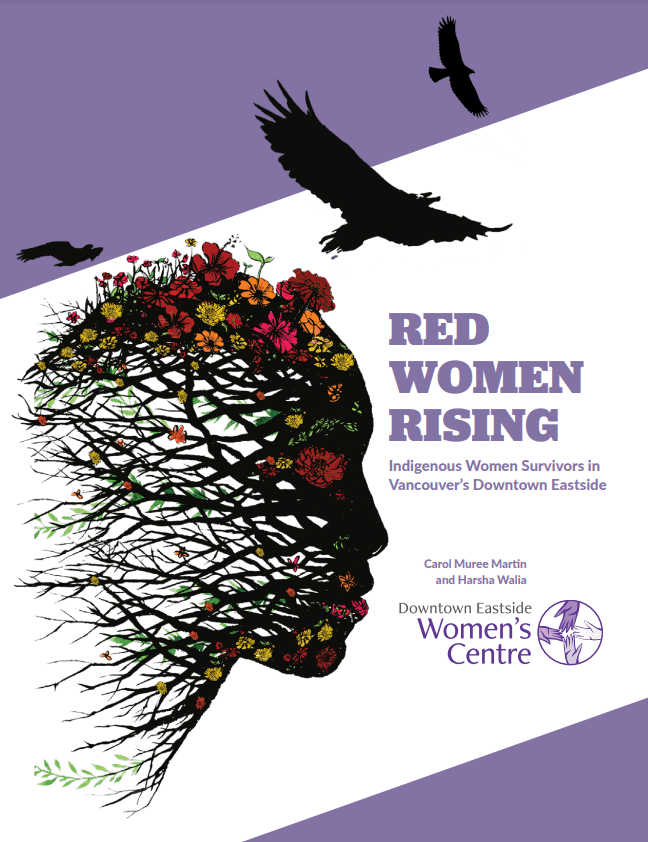40 search results
for
Human rights system
Recommendations for safe and affordable housing for Indigenous women in the DTES
Legislative protections
Recommendation 103: The provincial Residential Tenancy Act needs to be amended as follows:- The Act must cover all housing, including residents of social housing, nonprofit SROs, supportive housing, and temporary modular housing. People living in supportive housing should not be subjected to restrictive rules that violate their basic tenancy rights.
- The Act must tie rent to the unit, not the tenant, so landlords cannot renovict tenants to increase rents. The Act must also tie landlord rights to increase rent with obligations to maintain property and to comply with orders made by the Residential Tenancy Branch.
- Extend the ‘right of first refusal’ to tenants to return at their renovated unit at the previously payable rent in order to prevent renovictions. Also extend right of first refusal to all tenants, not just those living in residential complexes of more than five units.
- When evicting a tenant on grounds that the landlord or a close family member intends to move in, require the landlord to file a statutory declaration indicating their relationship to the family member and that they intend to occupy the unit for at least six months.
- Extend the grace period for non-payment of rent to 20 days; eliminate the Direct Request Process for non-payment of rent; and allow arbitrators discretion to consider contextual factors and refuse an order of possession for failure to pay rent.
- Provide tenants the right to a warning before getting an eviction notice for cause and require automatic dispute resolution hearings for all evictions, where landlords initiate eviction proceedings by applying with the Residential Tenancy Branch in order to receive a registered eviction notice and schedule a mandatory hearing.
- Develop a property maintenance policy that outlines a breadth of health, safety, and security standards.
- Create more robust enforcement mechanisms at the Residential Tenancy Branch to stop fraudulent evictions and to ensure landlords are adhering to maintenance obligations; amend criteria and lower the threshold for accepting investigation requests; increase the deadlines and expand the grounds for Review Consideration; and introduce a wider breadth of penalties that are imposed more often.
-
Category and theme:
Audience:
Groups affected:
Location of recommendation:
Recommendations for safe and affordable housing for Indigenous women in the DTES
Legislative protections
Recommendation 104: Landlords and property managers must be licensed and make licenses revocable in cases of significant misconduct.-
Category and theme:
Audience:
Groups affected:
Location of recommendation:
Recommendations for safe and affordable housing for Indigenous women in the DTES
Legislative protections
Recommendation 105: An annual audit of all landlords and property managers to track refusal of housing and housing discrimination.-
Category and theme:
Audience:
Groups affected:
Location of recommendation:
Recommendations for safe and affordable housing for Indigenous women in the DTES
Legislative protections
Recommendation 106: Amend the provincial Human Rights Code and Residential Tenancy Act to make it illegal to discriminate on the basis of social condition including health status and drug use.-
Category and theme:
Audience:
Groups affected:
Location of recommendation:
Recommendations to keep Indigenous families together in the DTES
Recommendation 111: Implementation of and full funding for federal Indigenous Child Welfare legislation that is attentive to specific First Nations, Metis, and Inuit needs. Ensure that Indigenous nations resume sole jurisdiction—and not simply service delivery—over child welfare for child-members of the nation who are on reserve and off reserve. This is in accordance with the United Declaration on the Rights of Indigenous Peoples.-
Category and theme:
Groups affected:
Location of recommendation:
Recommendations to keep Indigenous families together in the DTES
Recommendation 113: We applaud the work of Dr. Cindy Blackstock and the First Nations Child and Family Caring Society and call on the federal government to comply with the legally-binding orders of the Canadian Human Rights Tribunal to:- Immediately and fully apply Jordan’s principle to all First Nations children living on and off reserve.
- Apply Jordan’s principle based on the need of the child and not limited to the normative standard of care.
- Ensure that administrative delays do not delay service provision and respond to most cases within 48 hours.
-
Category and theme:
Audience:
Groups affected:
Location of recommendation:
Recommendations to keep Indigenous families together in the DTES
Recommendation 114: Implement the Truth and Reconciliation Commission’s Call to Actions on Child Welfare, recommendations in Indigenous Resilience, Connectedness and Reunification – From Root Causes to Root Solutions by Special Advisor Grand Chief Ed John, and recommendations in Calling Forth Our Future: Options for the Exercise of Indigenous Peoples’ Authority in Child Welfare by the Union of BC Indian Chiefs.-
Category and theme:
Audience:
Groups affected:
Location of recommendation:
Recommendations to keep Indigenous families together in the DTES
Accountability
Recommendation 132: An independent and external process for complaints, oversight, and accountability for MCFD neglect investigations, decisions to apprehend children, and for deaths of children and youth in government care.-
Category and theme:
Groups affected:
Location of recommendation:
Recommendations to end criminalization of Indigenous women in the DTES
Recommendation 133: All levels of government must recognize the inherent and constitutionally protected right of Indigenous people to establish and control Indigenous justice systems. All levels of government must also fund the establishment of Indigenous law institutes to support the restoration and advancement of Indigenous legal systems.-
Category and theme:
Audience:
Groups affected:
Location of recommendation:
Recommendations to end criminalization of Indigenous women in the DTES
Recommendation 135: Implement the Truth and Reconciliation Commission’s Calls to Action on Justice for Indigenous Peoples.-
Category and theme:
Groups affected:
Location of recommendation:
